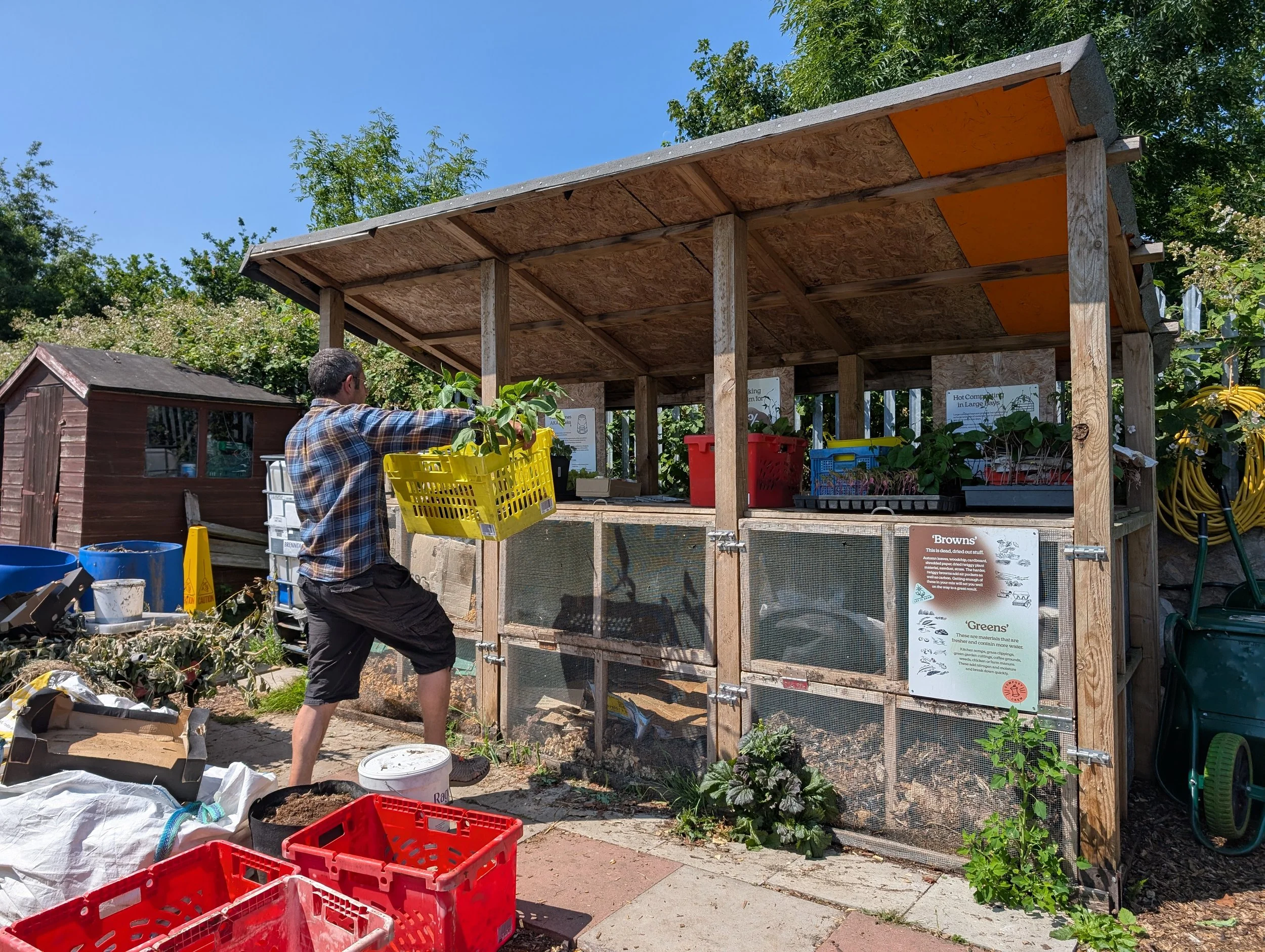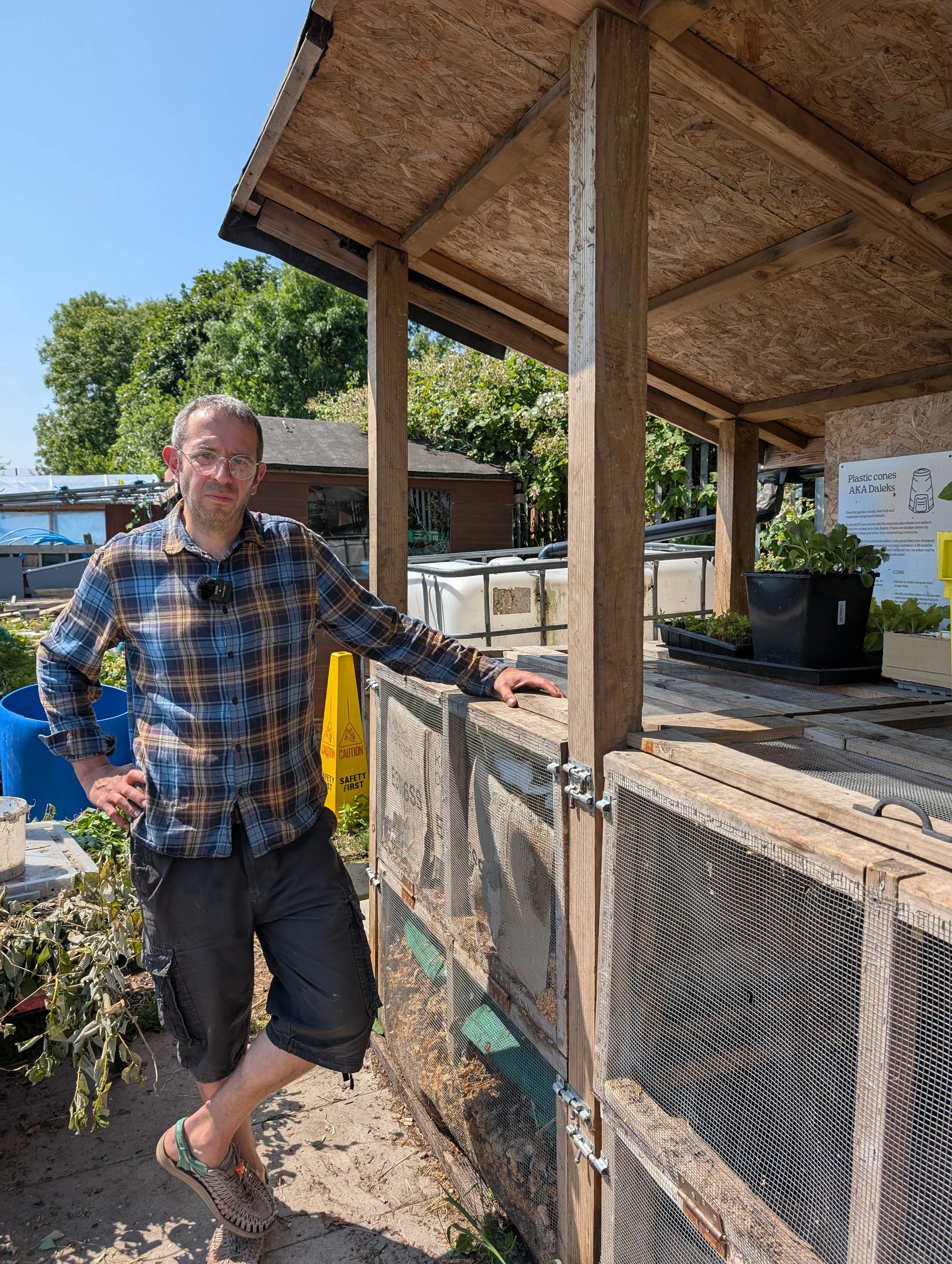Compost Culture: How a Birmingham Project is Turning Food Waste into a Community Revolution
In the heart of Birmingham, a quiet transformation is taking place — one bucket of food waste at a time.
Compost Culture an inspiring initiative led by Chris Poolman & Elizabeth Rowe of the arts organisation General Public, is reshaping how a city thinks about compost. What began as a grassroots effort to tackle food waste has grown into a movement that fuses sustainability, community power, and soil health — all rooted in the belief that waste is not waste until we waste it.
From Surplus to Soil: A Closed Loop in Action
At its core, Compost Connection is about creating a closed-loop system:
➡️ Surplus food from supermarkets and community groups gets intercepted
➡️ What can’t be eaten is composted using multiple methods
➡️ That compost is used to grow nutrient-rich produce
➡️ The fresh food is then redistributed — often on a “pay-as-you-feel” basis or exchanged for volunteer time
It’s a simple, elegant cycle — and a powerful example of how communities can take control of their food systems.
Built on Partnerships, Powered by People
This isn’t a solo effort. Compost Culture thrives through collaboration:
Incredible Surplus rescues vast quantities of edible food from supermarkets.
St Paul’s Trust, Crick Gardens, and Birmingham Friends of the Earth offer vital community spaces for composting and growing.
The Active Wellbeing Society brings a social lens, engaging people in growing, play, and purposeful action.
Together, they’ve created something far stronger than any one organisation could manage alone — a model of community-led resilience.
Composting That Adapts to the Urban Jungle
Birmingham is a dense, diverse city — and Compost Culture meets it where it is. They use multiple systems to handle an unpredictable stream of food waste:
🧱 Three-bay hot composting systems (modular, rat-proof, and thermophilic)
🧪 Bokashi systems for schools and organisations needing sealed, smell-free options
🔄 Rydan composter for unusual “gluts” (think samosas, hummus, even meat products)
Each system is designed for adaptability, recognising that urban composting isn’t a one-size-fits-all challenge. It’s messy, surprising, and deeply rewarding.
Growing More Than Food
What comes out of this system isn’t just compost. It’s African kale, tree spinach, fennel, squash, beetroot — real, nutritious food grown using no-dig methods that preserve soil life and structure. But the real growth is in the people:
“A lot of people’s lives have been changed through being involved in this project,” Chris Pullman reflects.
Volunteers take food home, build skills, gain confidence, and become part of something bigger than themselves. This is soil regeneration as community transformation.
Lessons from Compost Connection
This project offers a blueprint for what’s possible when communities take the lead:
✅ Composting isn’t just about waste — it’s about value recovery
✅ Bokashi and thermophilic systems make urban composting practical
✅ Food justice and soil health go hand-in-hand
✅ Strong partnerships are the backbone of sustainable impact
✅ Real change starts when people feel ownership of the process
Looking Ahead
With five more years of funding secured from the Climate Action Fund and National Lottery, Compost Culture isn’t slowing down. It’s scaling up — expanding its reach, refining its systems, and continuing to rewrite Birmingham’s composting story.
At Agriton, we believe in these kinds of initiatives — ones that honour natural systems, empower people, and close loops. Compost Culture is proof that the answers to food waste, soil health, and community resilience are already here. They just need to be nurtured.
🌱 Inspired?
Let’s connect and share what composting can look like in your community.
Because when soil remembers, everything grows.




